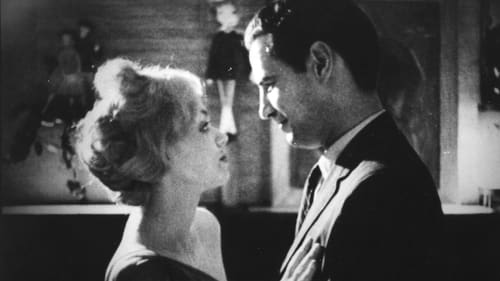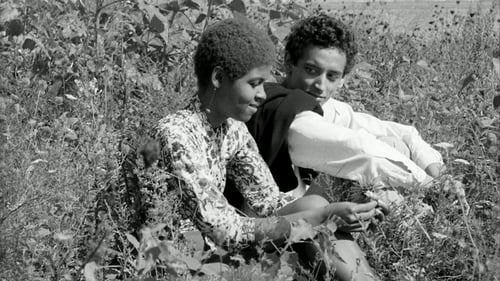
Director
Mystical, ephemeral and nearly lost to time, alchemy was a "magical theory of nature" widely held in pre-Enlightenment Europe. Author Terence McKenna portrays John Dee, court magician to Queen Elizabeth I, in this history of the discipline. McKenna discusses the role of the science as he travels to key sites in alchemic lore throughout Eastern Europe, including Heidelberg, home to the world's only contemporary alchemy lab.

Director
Herbalist Letha Hadady shares the secrets of her trade in this fascinating lesson in nontraditional medicine, revealing which Chinese herbs help mitigate conventional Western diseases such as high blood pressure, depression and diabetes. You'll also discover certain food products that contribute to overall health. Follow Letha to her kitchen, where she concocts her potent potions, and find out how you can replicate her approach in your home.

Director
Travel with mythology expert Joseph Campbell as he explores shared iconic imagery that marks the human experience and influences our ability to dream and find our spiritual center. Campbell suggests that all religions share the same path to enlightenment, but it's up to us to make the actual journey. Evidence of the commonality of mythological symbols is investigated in the ruins of Ajanta in India, Delphi in Greece and Stonehenge in England. -

Cinematography
Signals Through the Flames is at once a history and a celebration of the Living Theatre. Founded in the late 1940s by husband-and-wife performers Julian Beck and Judith Malina, the Living Theatre was for many years the predominent American outlet for the avant-garde movement. There were occasional self-imposed exiles to Europe in the 1950s and 1960s, but the group returned full-force during the Aquarius Age to entertain a new generation of theatregoers.

Director
Signals Through the Flames is at once a history and a celebration of the Living Theatre. Founded in the late 1940s by husband-and-wife performers Julian Beck and Judith Malina, the Living Theatre was for many years the predominent American outlet for the avant-garde movement. There were occasional self-imposed exiles to Europe in the 1950s and 1960s, but the group returned full-force during the Aquarius Age to entertain a new generation of theatregoers.

Director
At least forty films have been made about the Living Theatre; it remained to the American underground filmmaker Sheldon Rochlin (previously responsible for the marvellous Vali) to make the 'definitive' film about one of the most famous of their works, Paradise Now, shot in Brussels and at the Berlin Sportpalast. Made on videotape, with expressionist colouring 'injected' by electronic means, this emerges as a hypnotic transmutation of a theatrical event into poetic cinema, capturing the ambiance and frenzy of the original. No documentary record could have done it justice.

Cinematography
At the court of the Yellow Emperor, the Majoon Traveler & Lady Firefly appear in the Hall of Unconscious Magnetism.

Writer
A feature documentary about a young girl's descent into drugs. Shot in 1960s London, we see Caroline, a ravishing sixties naif, become a junkie, caught in the contemporary drug culture of the age.

Director
A feature documentary about a young girl's descent into drugs. Shot in 1960s London, we see Caroline, a ravishing sixties naif, become a junkie, caught in the contemporary drug culture of the age.

Sound Director
A documentary portrait shot in Positano, Italy in 1965 about Australian artist and occultist Vali Myers.

Director of Photography
A documentary portrait shot in Positano, Italy in 1965 about Australian artist and occultist Vali Myers.

Producer
A documentary portrait shot in Positano, Italy in 1965 about Australian artist and occultist Vali Myers.

Editor
A documentary portrait shot in Positano, Italy in 1965 about Australian artist and occultist Vali Myers.

Director
A documentary portrait shot in Positano, Italy in 1965 about Australian artist and occultist Vali Myers.

Cinematography
A pair of Village beatniks goes up against a clan of moneyed squares vacationing on the Maine coast.

Editor
A pair of Village beatniks goes up against a clan of moneyed squares vacationing on the Maine coast.

Cinematography
An advertising executive and some friends go on an all-night pub crawl and lament about life, love, society, and existence in general.

Director
Diane the Zebra Woman follows four women’s misadventures through the streets of New York City in 1962. All played by Flame Schon, the characters consist of The Detective, The Mother, The Child, and the Medium. Evocative of the scene from which it emerged, the film features cameos from integral figures like William Levy, Jonas Mekas, Paul Morrissey and features an original score composed by Malcolm Goldstein.

Cinematography
A depressed woman, Barbara, is on the verge of suicide while a man she meets in a church and a married couple try to convince her that life is worth living.

















